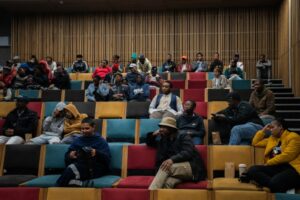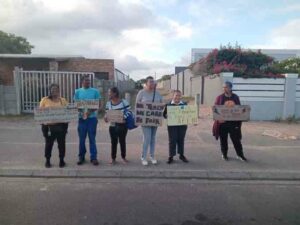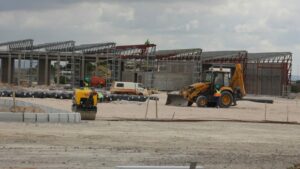Staff shortages and attitudes towards patients, long queues, poor infrastructure, a bad filing system and inadequate chronic medication are some of the problems identified in a recently released report on the state of health services in the Free State province conducted by Ritshidze, a health monitoring group, and partners including the Treatment Action Campaign (TAC). The majority of patients in Bloemfontein who raised these challenges are on HIV/AIDS and TB treatment and described the situation as very frustrating, compromising their well-being and offering little hope for the future.
The report reveals that of 1,349 public healthcare users interviewed, 82% thought that waiting times were long, up from 57% reported in October/November 2021. It finds that while the province has marginally improved in certain indicators, it has worsened in many and too often Free State facilities are among the worst performing sites across all provinces monitored. It also says the fear of poor treatment only discourages people from ever going back to the clinic, and that staff attitudes must be improved to ensure friendly and welcoming services for all people living with HIV and other vulnerable population groups.
An anonymous patient featured in the report describes himself as a gay man of 40 years who stays in Matlharantlheng, Bloemfontein. The clinic he attends is in Pholisi, near Pelonomi Hospital in Heidedal. His concerns regarding this clinic include the issuing of chronic medication, the bad attitude of the staff and their poor communication, and the filing of medical records. “I had something like a week without a medication. They said they are running short of medication. We had a meeting with them on this but I don’t think it is something they will resolve very soon. They keep saying they will fix this but it has been going on for long,” he says.
“Mostly they don’t talk to us in a good way. They don’t respect people. They don’t respect time. They don’t respect their work.”
Waiting time for medication, he says, is abnormally long. He will arrive at 7:30 in the morning but leave only at 16h30 when the staff is knocking off. He also says foreign nationals are denied healthcare if their days in the country have expired and their passport has not been updated. “They will say it’s a circular from the department. I’m not sure if we can trust them on that because they have been contradicting themselves on a lot of things. We’ve been having problems with the Free State department of health. We’ve been fighting but it seems we are not winning this fight.”
He says the CDM (clinical data management) system that was introduced to curb long queues doesn’t work because queues are still very long. He says his medication that he gets through the TAC will last him for only two weeks and he is worried that the medication is mixed with other things that are new to him and will compromise his health.
Snaking queues at Phahameng Bulfontein Clinic in the Free State.
Another patient complained about the bad filing of medical records. She says she encountered this when she took a child to the clinic. They could not find the file and said it was lost. This was a major inconvenience to her. “Honestly I’m no longer trusting anything that the Free State government will put on the table to address this. Filing problems are a long-time complaint but there is nothing happening to fix it,” she says.
“I’m using Phuthaditjhaba clinic. There is a healthcare worker there I’m usually fighting with. He is very rude and vile. He will take a long lunch from 1 to 3pm and when he returns he reeks of alcohol. We’ve escalated this problem and hope those higher up will attend to it,” says another patient who asked to remain anonymous.
The report also calls for an intervention on the extended anti-retroviral treatment (ART) refills, like 3-6 months as happens in Mpumalanga, the best performing province in this area. Satellite pick up points for ART drugs were found to be preferred by many people living with HIV since it means less inconvenience. “While there have been improvements, a lot still needs to be done to improve healthcare in the province,” says Mary Phiri, Ritshidze project officer.
“As TAC, we don’t embark on anything that doesn’t give us hope. I must say there are some signs of attitude change from the current health leadership in the Free State, way better than the time of Benny Malakoane, the former MEC of health in Free State. Now we see some new facilities being built in Welkom. However, we are not going to relax. We will continue engaging with them. Although Mangaung Metro is facing some challenges administratively, we hope politicians will set their differences aside and serve the people,” says Anele Yawa, general secretary of TAC.
Mondli Mvambi, spokesperson for the department of health in Free State, welcomed the report, though he says they are still studying and applying their minds to it: “We hope in a week or so we’ll be able to respond appropriately as some issues are very specific and need technical expertise… Some will need a thorough investigation to be able to arrive at a proper conclusion and, of course, some we can attend to immediately. All I can say now is that the report is with the relevant department and authorities for deliberation.”




